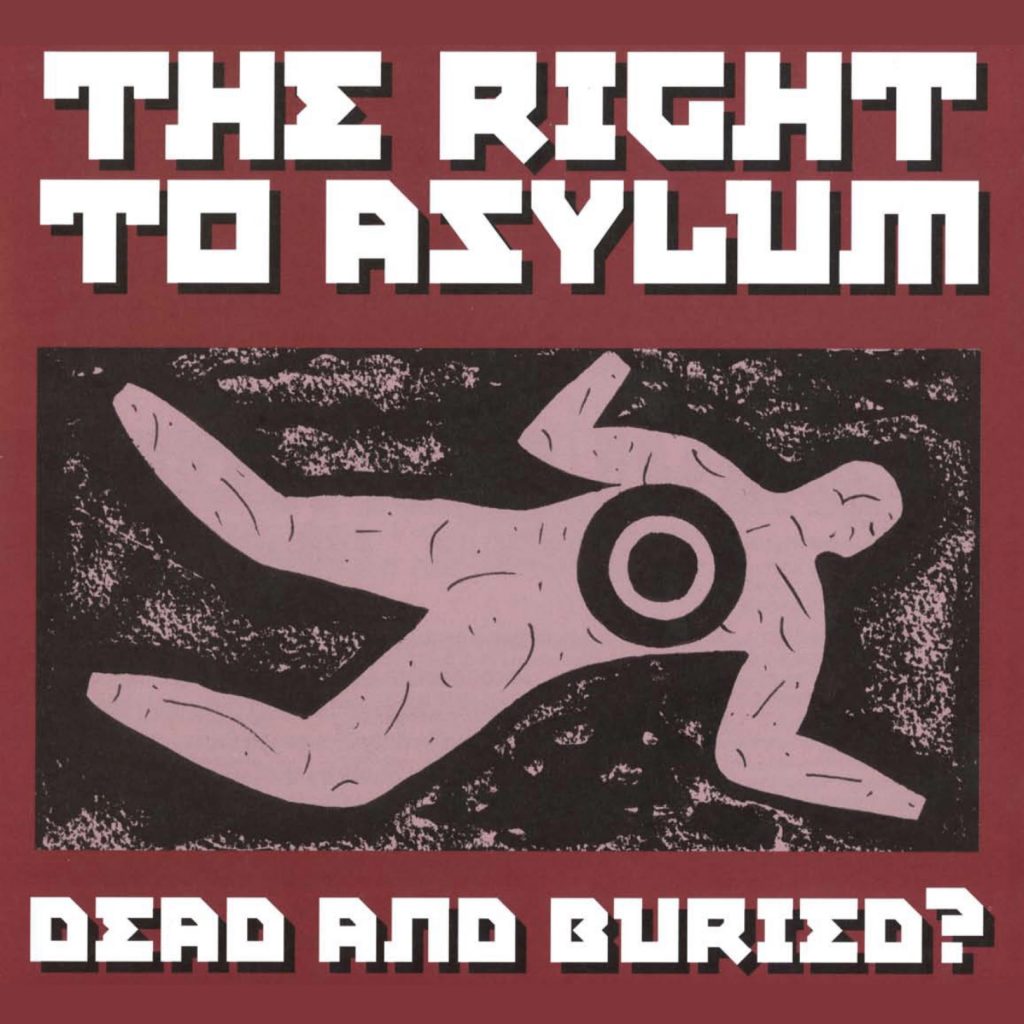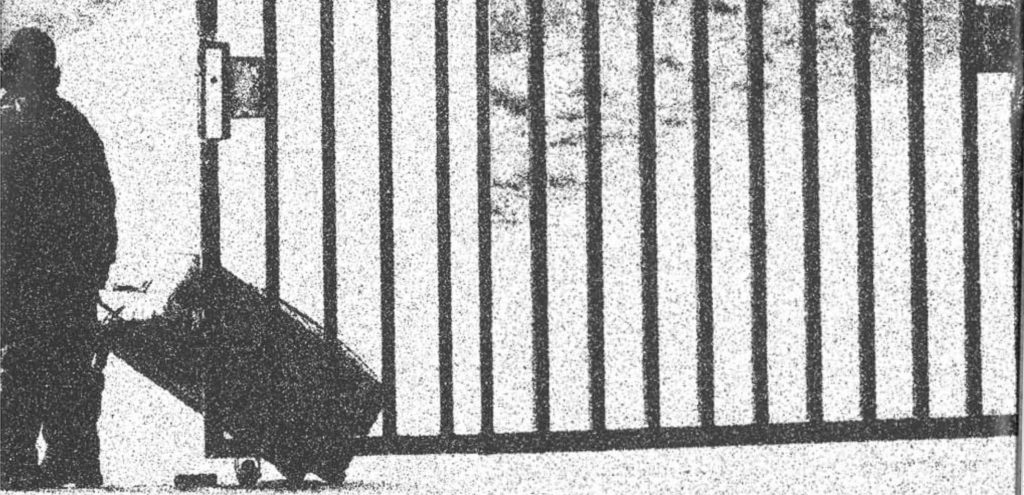A raft of new laws, Home Office measures and government proposals attempt to restrict the legal accountability of state actors, including ministers, while removing legal protections from those who need them most. In this IRR News long read, Frances Webber examines the various threats to human rights over the last year.
In the year since Boris Johnson’s Conservatives won the election with an impregnable majority, the man described by the media as a ‘libertarian by instinct’ has, under cover of the pandemic, pushed through the most authoritarian, draconian emergency powers seen in peacetime.[1] Meanwhile, his home secretary has overseen an immigration policy which threatens to breach the Refugee Convention as well as international obligations on rights to dignity and health and the rights and welfare of children, drawing the wrath of several senior officials, who have resigned, and the condemnation of official monitors and the courts. The government’s legislative programme has included Bills which break international law – not only the EU Withdrawal Bill but one which authorises informants and spies to commit any crime with complete impunity, and another which time-bars prosecution for murder and torture by British forces abroad.
At the same time as creating impunity for law-breaking by informants and soldiers, the government is seeking to develop its own impunity. The possibility of leaving the European Court of Human Rights (ECtHR) and replacing the Convention (ECHR) by a British Bill of Rights is being mooted again, and moves are afoot to limit courts’ powers to hold ministers to account, through restrictions on judicial review and curtailing the powers of the Supreme Court. Critical reports from parliamentary committees, government-appointed inquiries and reviews, and even court judgments, have been ignored. And even investigative journalists have been blocked by a secretive Cabinet Office unit.

Impunity in policing dissent
As the Black Lives Movement emerged, ministers, while careful to express horror at the brutality of the treatment of George Floyd and concern at injustice, soon proceeded to label BLM protesters in the UK as ‘mobs’, ‘thugs and criminals’, reportedly seeking fast-track prosecutions within 24 hours of arrests and proposing more police powers to crack down on protest. The state’s equation of protest, dissent and criminality, and its willingness to collude in law-breaking, are vividly on show at the Undercover Policing (‘Spycops’) inquiry, which started hearing oral evidence in November. Commissioned in 2015,[2] it reveals how since 1968, up to 1,000 mainly left-wing and anti-racist political and campaigning groups, and the family of Stephen Lawrence, were infiltrated by police, whose crimes included having sexual relationships with activists by deception (in some cases fathering children); stealing the identities of dead children; facilitating criminal protests; committing perjury by giving evidence to criminal courts ‘in character’, resulting in miscarriages of justice; and colluding in crimes including murder and perverting the course of justice. It is not expected to report until 2023.
The government is not waiting. Its Covert Human Intelligence Sources (Criminal Conduct) Bill (CHIS Bill) gives carte blanche for undercover police and informants to commit any and all crimes in the course of the state’s business, immune from criminal and civil liability. No prior judicial authority is required; the Bill places no limits on the crimes that can be authorised (as former Director of Public Prosecutions Ken MacDonald QC observed,[3] it will be easier for police to commit a serious crime than to search a shed); and the purposes are not limited to grave matters of national security but include the interests of public order or the economic well-being of the UK (legitimising illegal disruption of trade union activity).
The government argues that the Bill merely puts on a statutory footing the current ad-hoc arrangements, but as critics argue, its blanket advance immunity is very different from the current case-by-case scrutiny of the public interest in prosecution by the CPS, and the civil redress available for victims, which the Bill removes – leaving no remedy, in violation of the right to redress guaranteed by Article 13 ECHR. MPs, peers, trades unions, rights groups and even former undercover police have issued grave warnings about the failure to put explicit limits on the crimes that can be authorised under the legislation. And a joint briefing by Reprieve, the Committee for the Administration of Justice (CAJ), Pat Finucane Centre, Privacy International and Rights & Security International has also drawn attention to state collusion with crimes in Northern Ireland, including the 1989 murder of solicitor Pat Finucane (which according to an official report was ‘actively furthered and facilitated’ by employees of the state, who ‘in the aftermath … [engaged in] a relentless attempt to defeat the ends of justice’).[4] Such crimes, the groups say, ‘fuelled the conflict, damaged the rule of law and have left a poisoned legacy to this day’.[5]
Rights groups thus remain unconvinced by the government’s assertion that the Human Rights Act provides the necessary protection against authorisation of murder, torture or rape, the lack of prior judicial consent, the removal of the power to prosecute and of victims’ right to seek redress.[6] But with Labour whipped to abstain – provoking a rebellion by 34 MPs and the sacking of seven Labour frontbenchers – the Bill passed its Commons stages in October 2020.
How the legislation enlists children as informants
Shockingly, the Bill failed to ban the use of children as informants, a practice only revealed in July 2018 when a House of Lords subcommittee flagged up regulations extending the period for which children may be deployed from one to four months. In a Lords debate in October 2018, Baroness Sally Hamwee spoke of a 17-year-old among a group of girls sold for sex by a man she thought of as her boyfriend, then enlisted by police to collect information about her pimp – which led her to become an accessory to murder. A legal challenge led to a draft revised code of guidance, stating that children (‘juveniles’) should only be used as informants in ‘exceptional circumstances’, but ministers refuse to ban the practice. As Rosalind Comyn, legal and policy officer at Rights Watch (UK) has said, ‘Enlisting children as foot soldiers in the darkest corners of policing, and intentionally exposing them to terrorism, crime or sexual abuse rings – potentially without parental consent – runs directly counter to the government’s human rights obligations [under the UN Children’s Rights Convention and domestic law], which demand the interests of children be placed at the heart of decisions which affect them. It is also an affront to the government’s own safeguarding guidance, which requires our public authorities to help children escape crime, not become more deeply embedded in it.’

The Home Office – a culture of impunity
The Home Office has been no less brutal in its treatment of vulnerable refugees and migrants. Despite the rising death toll caused by the lack of legal, safe routes and the militarisation of the English Channel, and despite strong campaigning and fierce opposition in the House of Lords, the government scrapped the obligation it had accepted in 2018 to negotiate to retain a mechanism for child refugees stranded in Europe to join asylum seeking family members here,[7] in pursuance of a plan to remove these rights.[8] Equally retrogressive is its attempt to violate the key obligation of non-refoulement in the Refugee Convention, through the promise of legislation to ‘deny asylum’ to those using ‘illegal routes’ to enter the UK.
Earlier in the year, when, with borders closed, it was physically impossible for anyone to be deported, and the Home Office was refusing to release immigration detainees, many immigration judges granted bail, since the only lawful rationale for detention is for deportation. In an arrogant reversal of accountability, the Home Office wrote to judges demanding an explanation for the release of so many detainees.
Now, in its rush to remove new arrivals as quickly as possible before Brexit, the Home Office has cut corners and acted illegally, according to lawyers and detention visitors. At least one senior Home Office official has resigned and others have expressed concern over the prioritisation of ‘cruel and quite brutal’ enforcement over children’s welfare – resulting in some cases in separation of children from parents and in others the use of physical force on children. An unlawful practice of curtailing asylum interviews so as not to ask questions which would identify trafficked children, to whom special duties are owed – creating a ‘serious risk of injustice and of irreversible harm’, as a judge ruled in November, continued despite his ruling. The Court of Appeal ruled in October that the Home Office had for five years acted unlawfully in removing people at such short notice that they could not seek legal advice – a policy pursued in 40,000 cases, which ‘risked removing people with a legal right to be in the country’.
In this fevered climate of enforcement, the health, physical and mental, of those under the care of the Home Office is a low priority. Prison inspectors examining Home Office asylum reception arrangements found hundreds of wet, cold migrants forced to spend hours in cramped containers on a ‘rubble-strewn building site’ without access to dry clothes, bedding or washing facilities in October. The following month, four independent monitoring boards reported that asylum seekers crossing in small boats faced ‘inhumane treatment’ (violating an absolute prohibition in the Human Rights Act) from arrival to departure, including being moved between detention centres with untreated broken bones, burns and cancer, and children held in adult detention centres. Over half of those detained for removal at one centre became suicidal or self-harming – but were still put on deportation charter flights.

Sidestepping the Windrush Lessons Learned review
The new ‘compassionate culture’ promised by Priti Patel in her response to the Windrush Lessons Learned review by Wendy Williams, published in March this year, includes the wholesale dumping of asylum seekers during the pandemic in shared, insanitary accommodation (a practice condemned by the Public Accounts Committee); evicting refused asylum seekers (a policy resumed in September after a six-month pause) and making rough sleeping a ground for deportation.
The Williams review, published in March 2020, found that what happened to Caribbean pensioners affected by hostile environment policies was ‘foreseeable and avoidable’. The ‘culture of disbelief and carelessness’, Williams wrote, ‘must change’; the Home Office must acknowledge the wrong done, open itself up to greater external scrutiny, and policy must ‘be rooted in humanity’. The Home Office pledged to implement all the 30 recommendations. But we are learning never to believe such pledges.
Even as they are held up as a foil to the ‘dangerous criminals’ deported to Jamaica at the beginning of December, the original victims are treated with contempt. With fewer than 200 compensated of the over 13,000 affected, and only £1.6 million of the estimated £200-£570 million for compensation paid out, with nine dead before they could be compensated and with victims still destitute, the scheme’s head of policy, former barrister Alexandra Ankrah, resigned, saying it was ‘systematically racist’ and unfit for purpose. Officials administering the scheme, who had implemented hostile environment policies, brought with them the same attitudes, ‘not just racism, [but] an unwillingness to look with any curiosity or genuine concern at the situation of victims’, she said. Journalist Amelia Gentleman, whose reports publicised the scandal, said the scheme’s delays, extremely low payouts and very high amount of proof demanded produce ‘an uncomfortable echo … of the original problems where the Home Office was refusing to believe people’.
Overseas Operations Bill – legislating for impunity abroad
Broken promises of redress, contempt for victims and nonchalant lawbreaking form part of a culture of impunity for the powerful, and an assault on legal accountability. Mirroring the CHIS Bill which gives agents impunity for UK crime, the Overseas Operations (Service Personnel and Veterans) Bill (OOB) creates a presumption against prosecution for human rights abuses committed on operations abroad after five years, including murder and torture,[9] and prevents claims against the MoD after six years.[10] This defies international humanitarian law (which regulates the conduct of warfare), as well as international human rights law including the UN Convention Against Torture, which bans any grant of impunity or statute of limitation in the case of torture.[11] The government’s law officers – the attorney-general, the solicitor-general and the lord chancellor – all voted for the Bill;[12] and Labour leader Keir Starmer, a human rights lawyer, whipped Labour MPs at second reading not to vote against it but abstain, and three junior shadow ministers lost their jobs for voting against it.[13]
The Bill is the culmination of the pushback against the campaign for accountability for abuses in Iraq and Afghanistan, which started when the courts ruled in a number of cases that British soldiers breached the Geneva Conventions (the laws of war) and subjected Iraqi civilians in their custody to inhuman and degrading treatment, and intensified after the Al-Sweady inquiry cleared British soldiers of murdering detainees. In presenting the Bill, ministers portrayed the soldiers as victims – of what Policy Exchange, the government’s go-to thinktank, dubs ‘lawfare’.[14]

European Convention of Human Rights to be reviewed?
But then the OOB, like the CHIS Bill, cannot stand with the European Convention on Human Rights – and the ECHR has long been in the sights of powerful Conservative ministers and their advisers. Policy Exchange, whose alumni include Michael Gove, Munira Mirza, Trevor Phillips and David Goodhart, has long campaigned to repeal the Human Rights Act and leave the European Court of Human Rights. It argues that English law protects human rights perfectly well, without the imposition of a supranational jurisdiction which frequently imposes ‘newly invented legal requirements on states’. The OOB had its origin in the landmark ECtHR ruling that human rights obligations applied to British soldiers abroad, which infuriated right-wing Tories,[15] as did the Court’s interventions in deportation cases such as Abu Qatada, the Jordanian imam accused of support for terrorism. The Tory Right has campaigned against the Human Rights Act (which incorporated the ECHR into UK law)[16] ever since its passage in 1998, arguing that it gives rights to foreign offenders and other ‘undeserving’ groups. In 2011, the coalition government set up a ‘Bill of Rights Commission’ to examine replacing the ECHR by a British Bill of Rights,[17] and a pledge to repeal the Human Rights Act featured in the 2015 election manifesto.[18] But liberal Tories pushed back, joined by senior judges and rights groups, and the issue subsided, overtaken by the 2016 Brexit vote.
Now, with the UK in trouble with the Council of Europe over issues including prisoners’ voting rights and security force killings and collusion in Northern Ireland, and recent ECHR decisions on deportation, the ECHR is back on the agenda. One of the Brexit negotiation sticking points in November was said to be the government’s refusal to give an undertaking to adhere to the Convention. The 2019 Conservative Manifesto pledged to ‘update’ the Human Rights Act, and in December 2020, a review of the Act was announced, with a panel including former appeal court judge Sir Stephen Laws, senior fellow at Policy Exchange’s Judicial Power Project (see below). Its themes include ‘whether domestic courts are being unduly drawn in to areas of policy’ and whether the Act ought to apply outside the UK. Rights groups fear it will aim to limit access to legal protection by asylum seekers and other vulnerable groups.
Loosing the chains of law
The same theme, that judges have wrongly assumed powers to intervene in constitutional and ‘political’ matters where they have no right to, informs the government’s proposal for a Constitution, Rights & Democracy Commission, to ‘examine the broader aspects of our constitution … and develop proposals to restore trust in our institutions and in how our democracy operates’. The initiative emerged out of fury at the supreme court’s ruling that Johnson’s suspension of parliament was null and void. Other high-profile judgments such as that Gerry Adams’ internment was unlawful, that Shamima Begum must be allowed to attend her revocation of citizenship appeal,[19] that exorbitant fees for children to exercise their right to citizenship breached their rights – added fuel to the fire. Once again, the government takes its tune from Policy Exchange, whose Judicial Power Project aims to ‘correct the undue rise in judicial power’, arguing that ‘the ongoing expansion of judicial power increasingly corrodes the rule of law and effective, democratic government’. A parliamentary committee is currently taking evidence on what the Commission’s priorities and workload should be.
A third body tasked to clip the wings of the judges is the Independent Review of Administrative Law (IRAL), set up in July 2020 and chaired by Lord Faulks, a Bill of Rights Commission member who called for leaving the Human Rights Convention and repeal of the HRA, and has accused the supreme court of ‘unconstitutional’ trespass on prerogative powers over its prorogation judgment. (He has praised the work of Policy Exchange in this field.) IRAL is examining legal challenges to administrative decisions, within the framework of the ‘need to strike a balance between the right of citizens to challenge government through the courts and the elected government’s right to govern’. As Liberty points out, the dichotomy is false: ‘judicial review is essential to good governance’, by ensuring that ‘public bodies discharge their legal duties, do not abuse their powers and act compatibly with the rights of those affected by their actions’. Judicial review is a powerful and inexpensive tool to ensure that ‘official decisions are lawful, reasonable and fair’ – a constitutional right, according to a senior constitutional expert, which ‘allows ordinary people to ask an independent judge to decide whether a public body has acted lawfully or not’ and bridges the ‘imbalance of power between individuals and the state’, as the Law Society said. But it seems the last thing this government wants is to remedy this ‘imbalance of power’.
Instead, lawyers and the judges who attempt to keep government action within the law are held up to public hatred as villains. When judges stayed the removal of most of the proposed deportees on the December charter flight to Jamaica – the first since March – immigration minister Chris Philps blamed law firms using ‘last-minute tactics’, rather than questioning whether Home Office officials had indeed learned any lessons from the Windrush scandal. Blaming the lawyers, attacking them as ‘activist’ ‘do-gooding’ ‘lefty lawyers’, seems to have become a knee-jerk response to losing in court. The result of such rhetoric, which comes from the top, has been the extension of the kind of hate crimes associated with the ‘hostile environment’ to the spaces where lawyers work. Dismayed by a ‘violent racist attack’ by a man with a knife on a member of staff at a London law firm, as well as evidence that other immigration law firms are being targeted with serious threats, immigration law firms are taking action to secure their offices and protect their staff. Yet the unprecedented chorus of disapproval from senior judges and national and international legal bodies[20] at the inflammatory language from the prime minister and the home secretary, far from restraining them, seems to goad them into further verbal attacks.
With the Equality and Human Rights Commission transformed by recent appointments[21] from a (tooth-decayed) watchdog into an instrument of government policy, a Cabinet Office unit blocking ‘sensitive’ FOI requests from too-zealous investigative journalists, and court rulings met with threats to curtail jurisdiction, the government is well on the way to violating human rights with impunity.


Brilliant reporting – terrifying state of facts
Thank you for this important and alarmingly clear account. It is horrifying, and shaming.
Thorough expose of the (mis) direction that British justice continues to take – thank you. Why is this article not available on FB so that it can be shared far and wide?
Hi Dee, thanks for your comment. The article has been shared on our Facebook Page which you can view here: https://www.facebook.com/IRRnews/posts/3578713788887712
My story is one of near-total corruption within, and far beyond, the British legal system. But the most horrifying aspect is the TOTAL cover-up not only by the media but by organisations which claim to support law, justice and human rights and to oppose corruption. None will even bring the story to public attention let alone take any action of any kind. You can only see a brief account of the story at http://www.CriminalsInPower.weebly.com